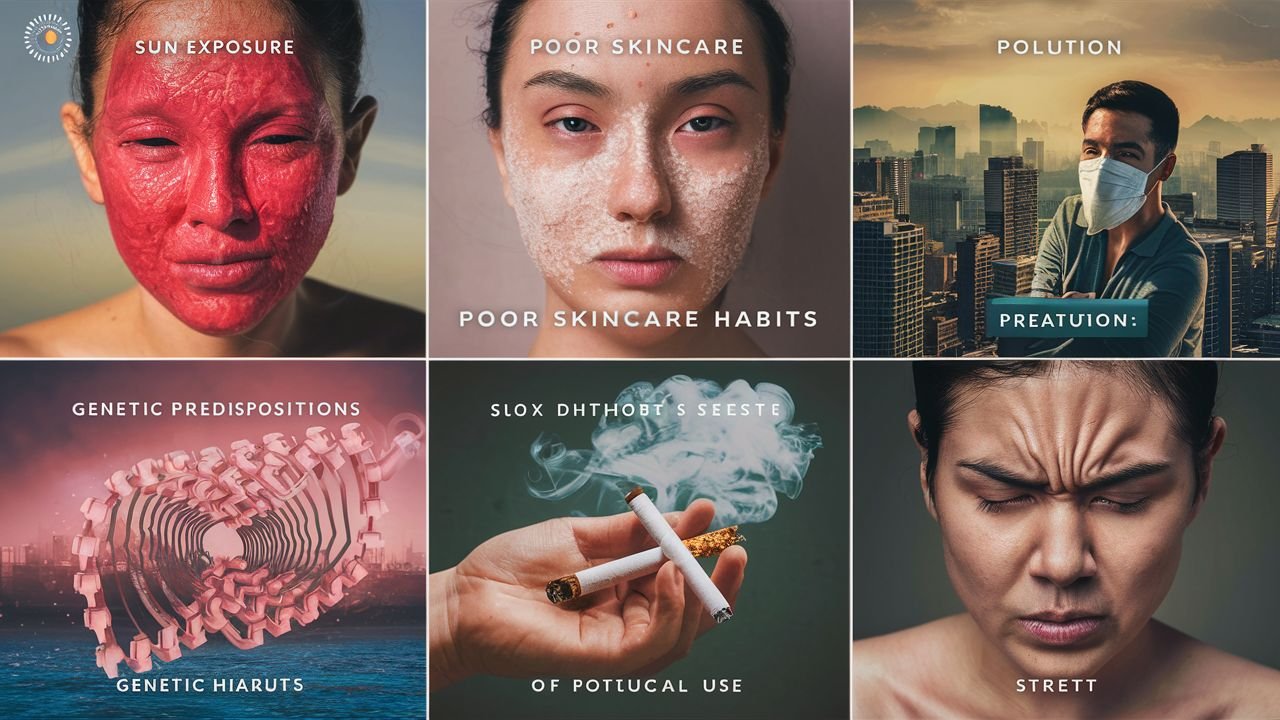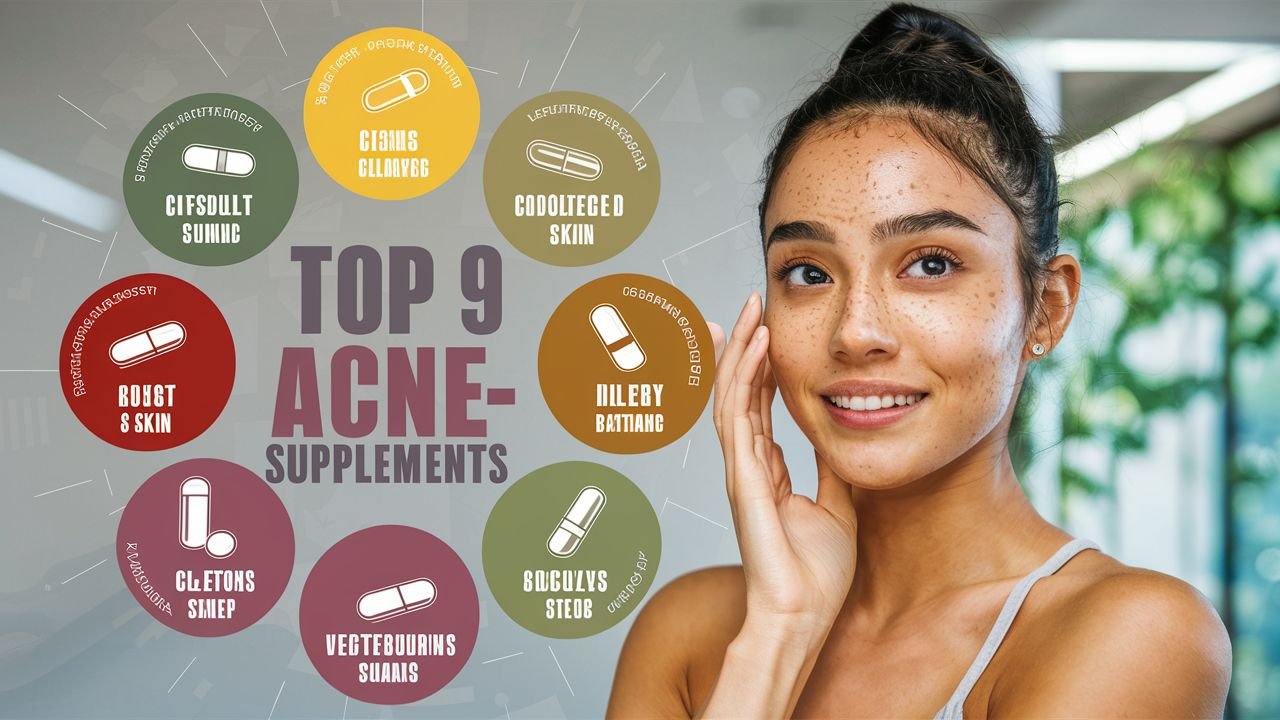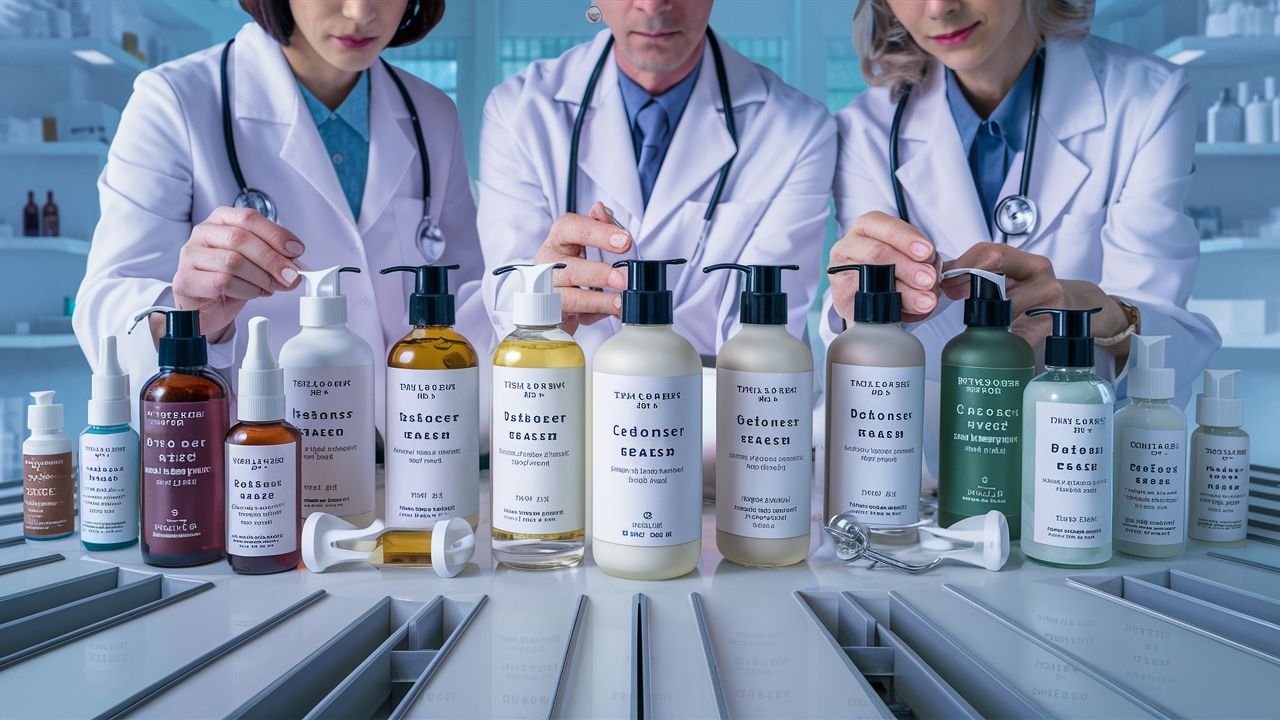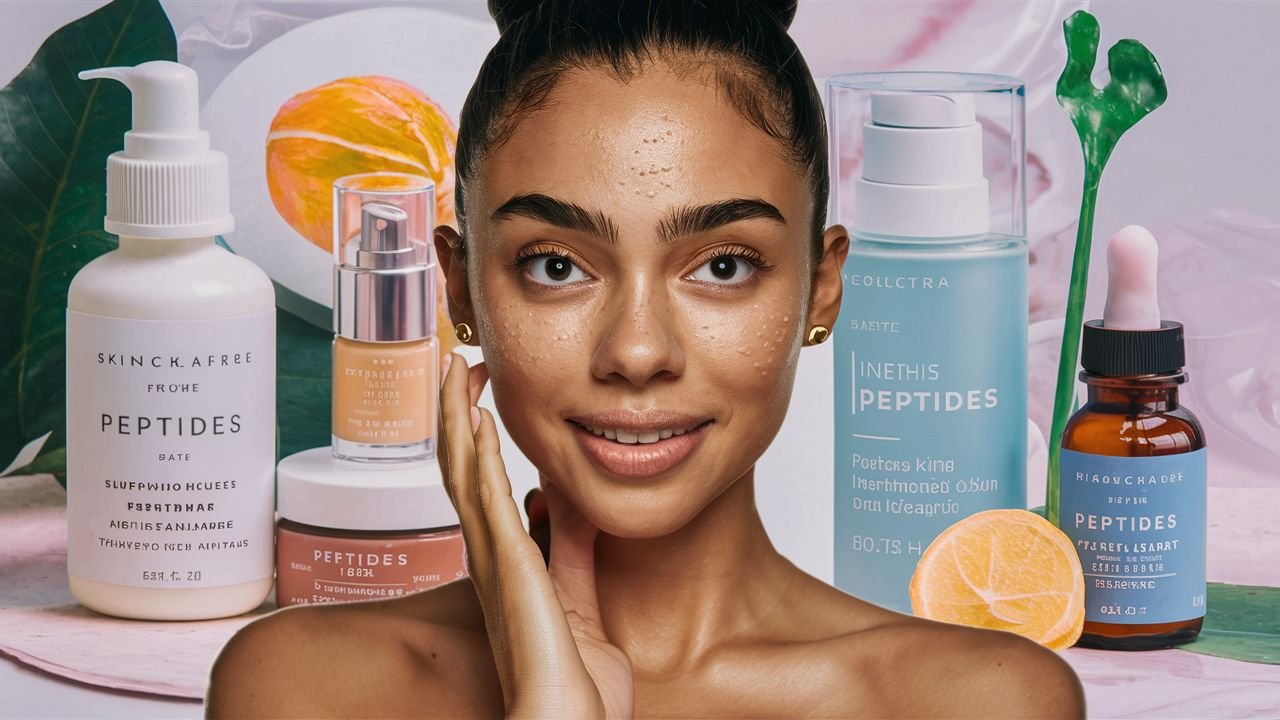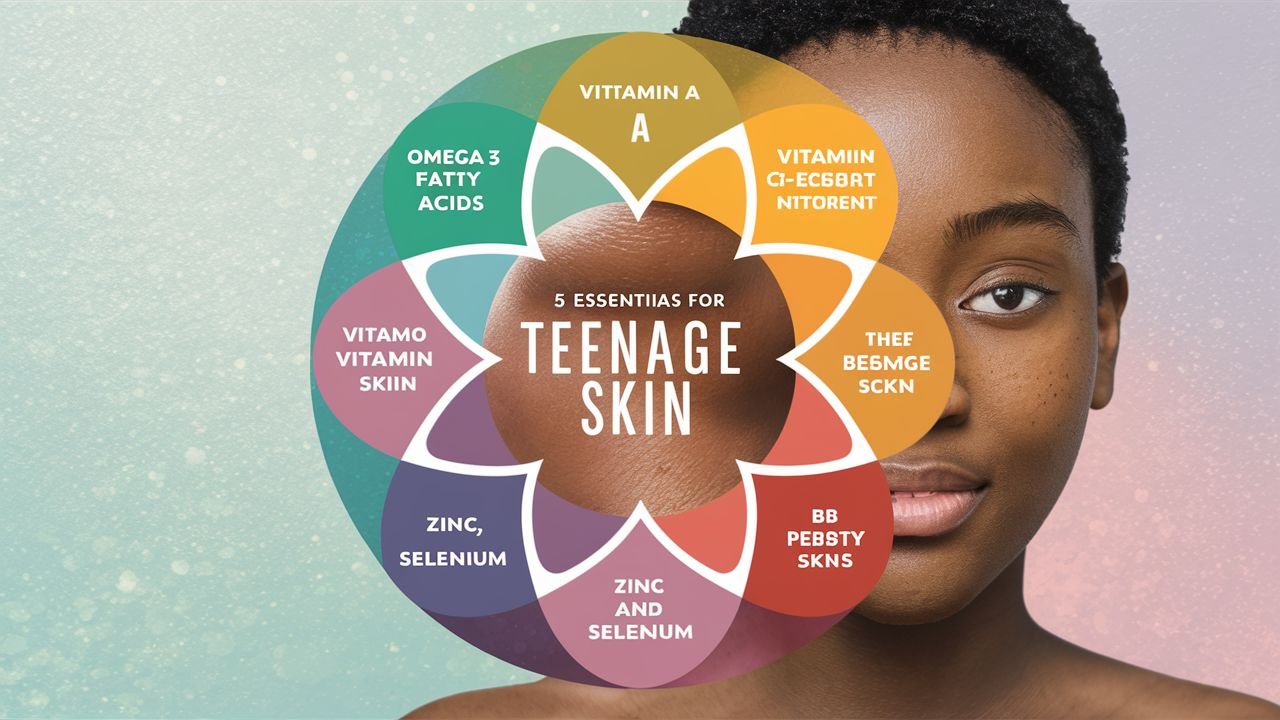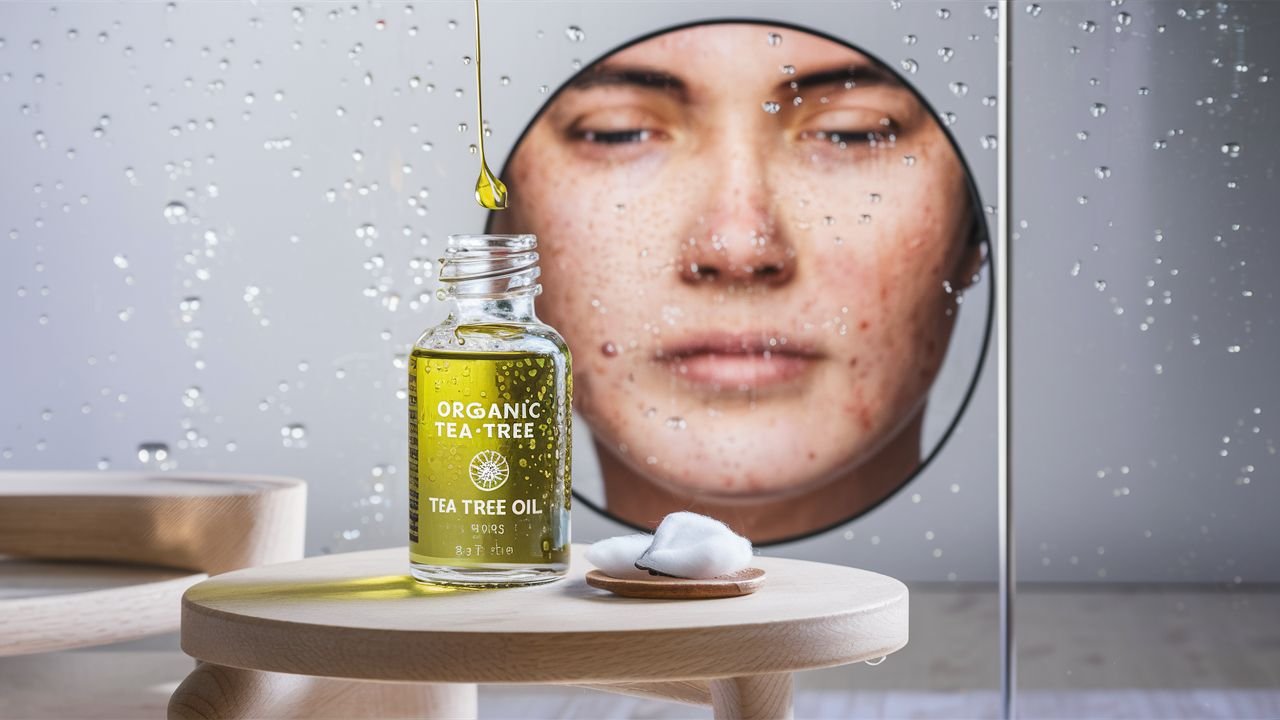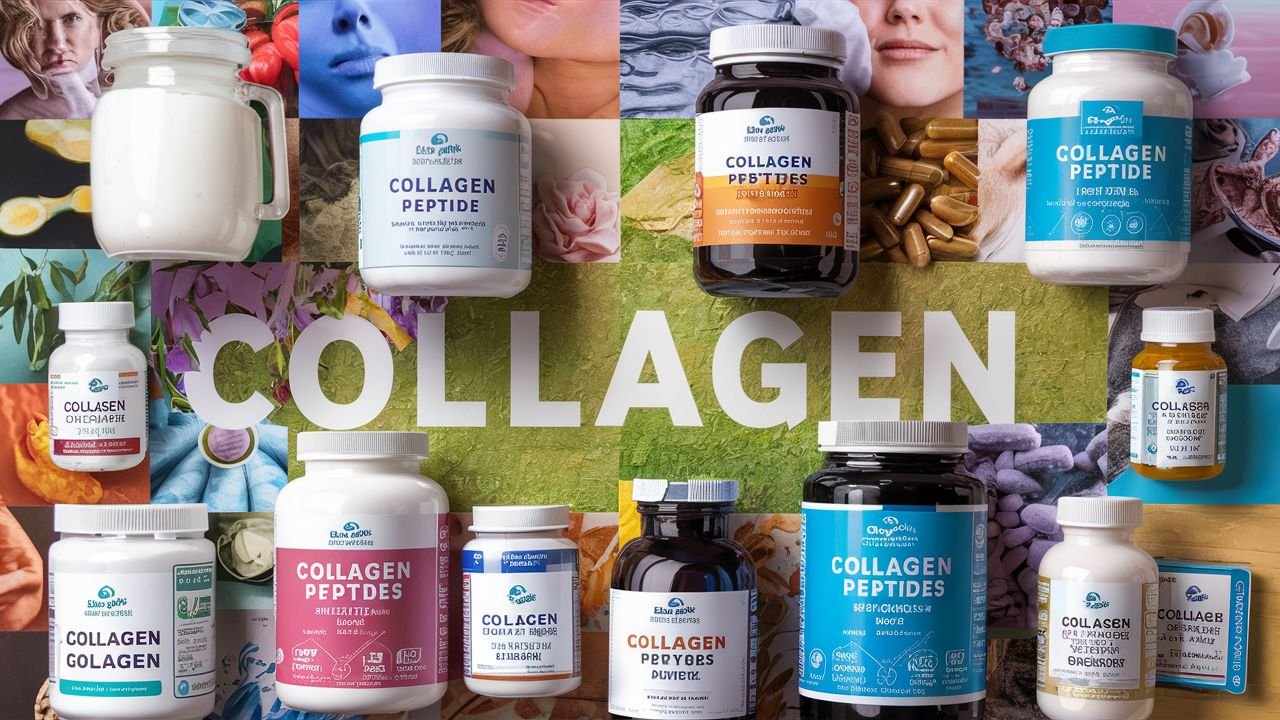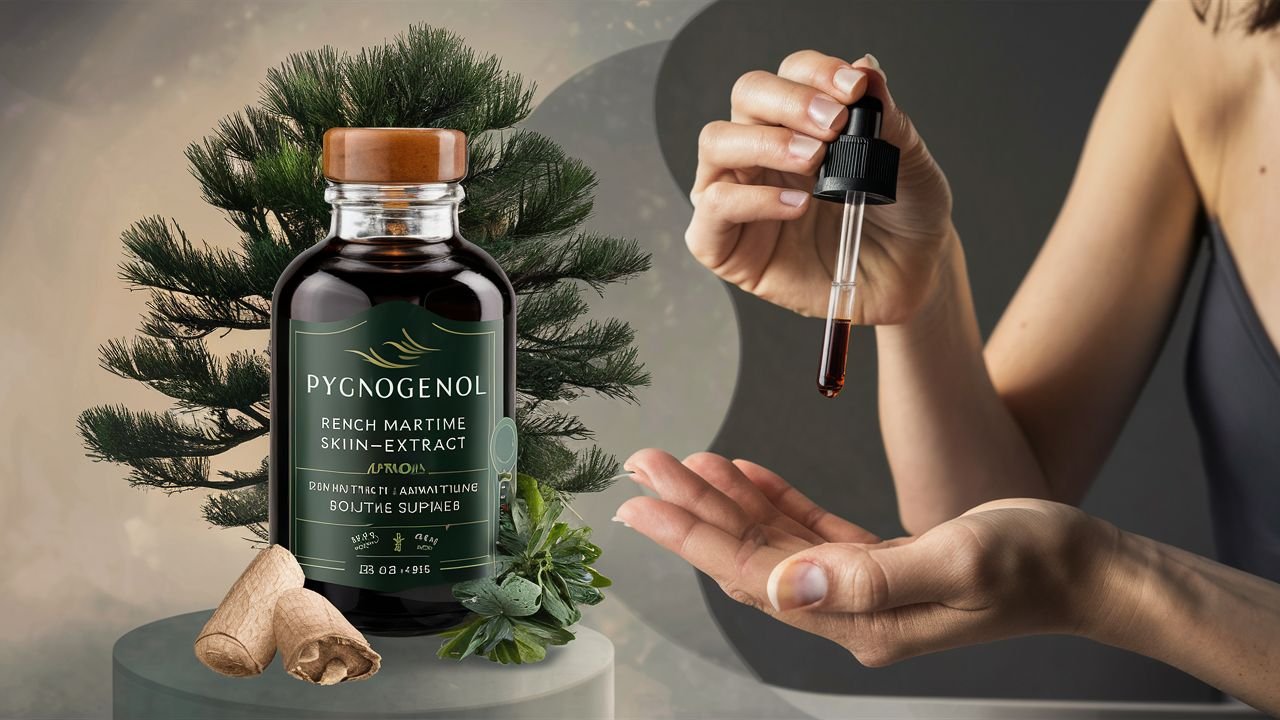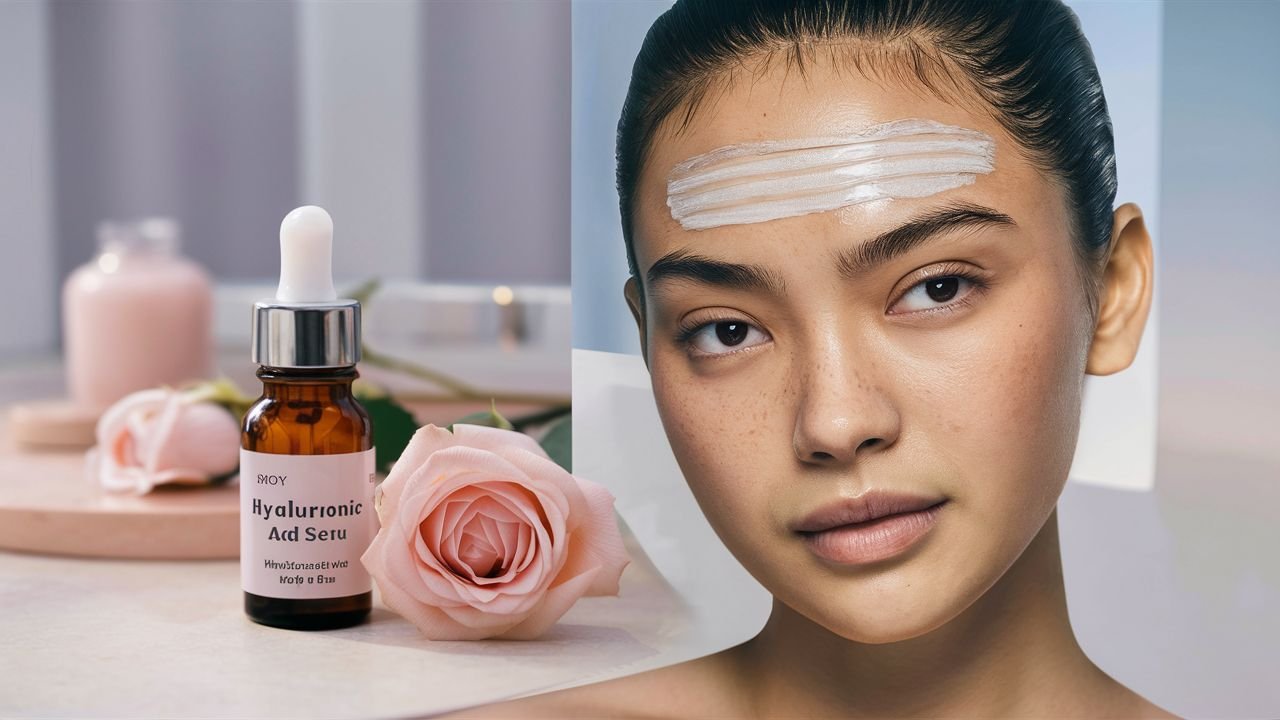When you think of caffeine, your mind may turn to your morning cup of coffee or the energy boost it provides. But did you know that caffeine can also work wonders for your skin? This popular stimulant has made its way into skincare products, thanks to its antioxidant and anti-inflammatory properties. So, how exactly does caffeine benefit your skin? Let’s dive deeper into the world of caffeine in skincare and explore its antioxidant and anti-inflammatory benefits.
Key Takeaways:
- Caffeine in skincare products offers antioxidant benefits that protect the skin from oxidative damage.
- It can help reduce inflammation, redness, and puffiness, making it beneficial for sensitive skin and conditions like acne and rosacea.
- The circulatory benefits of caffeine can minimize the appearance of redness, shadows, and puffiness, especially in the eye area.
- Caffeine can be consumed orally through coffee, tea, and chocolate, as well as applied topically in skincare formulations.
- When incorporating caffeine into your skincare routine, it’s important to choose products with higher caffeine concentration and consult a dermatologist for personalized advice.
The Antioxidant Benefits of Caffeine on the Skin
Caffeine provides potent antioxidants that can protect the skin from oxidative damage caused by factors like UV light and pollution. It helps counteract the breakdown of collagen and elastin, two important proteins that maintain the structure and firmness of the skin. By reducing free radical damage, caffeine can contribute to a more youthful and radiant complexion.
Antioxidants play a crucial role in skincare by neutralizing harmful free radicals that can damage cells and accelerate the aging process. Caffeine, known for its stimulating properties when consumed as a beverage, also exhibits remarkable antioxidant effects when applied topically to the skin.
“The antioxidant properties of caffeine make it a valuable ingredient in skincare products aimed at protecting and rejuvenating the skin. By scavenging free radicals, caffeine helps maintain the structural integrity of the skin, preventing the breakdown of collagen and elastin.”
Collagen is the main structural protein in the skin, responsible for its firmness and elasticity. Elastin, on the other hand, provides suppleness and flexibility to the skin. Over time, factors like sun exposure and environmental pollutants can lead to the production of free radicals, which can damage collagen and elastin fibers.
However, the antioxidant benefits of caffeine can help mitigate this damage by neutralizing free radicals and protecting collagen and elastin from degradation. By preserving and stimulating the production of these proteins, caffeine promotes healthy, youthful-looking skin.
In addition to its antioxidant properties, caffeine has been shown to have anti-inflammatory effects on the skin, further contributing to its overall skincare benefits. But more on that in the next section.
| Antioxidant Benefits of Caffeine | Collagen Protection | Elastin Protection |
|---|---|---|
| Neutralizes free radicals | Preserves collagen fibers | Maintains elastin elasticity |
| Reduces oxidative stress | Enhances skin firmness | Improves skin suppleness |
| Defends against environmental damage | Supports skin structure | Helps prevent sagging |
By incorporating skincare products or treatments containing caffeine, individuals can harness the antioxidant benefits of caffeine to protect their skin from free radical damage and promote a more youthful complexion.
The Anti-Inflammatory Benefits of Caffeine on the Skin
Caffeine has long been appreciated for its stimulating effects, but did you know it also possesses anti-inflammatory properties that can benefit your skin? Whether you have sensitive skin, acne, or rosacea, incorporating caffeine into your skincare routine can help reduce redness, irritation, and puffiness.
So, how does caffeine work its magic on inflammation? It does so by blocking receptors and inhibiting enzymes involved in inflammatory pathways. This, in turn, leads to a decrease in the production of pro-inflammatory cytokines, the molecules responsible for triggering redness and irritation in the skin.
“Caffeine’s anti-inflammatory properties can contribute to a more calm and balanced complexion, reducing redness and irritation for those with sensitive skin.”
In addition to its direct anti-inflammatory effects, caffeine also improves blood flow, which can further aid in reducing redness and promoting a more even skin tone. By constricting blood vessels near the skin’s surface, caffeine helps alleviate visible signs of inflammation.
To better understand the benefits of caffeine in skincare, let’s take a look at how it can address specific concerns:
Redness Reduction
For individuals with red, flushed skin, caffeine can provide relief by reducing skin redness and improving overall complexion. By constricting blood vessels, caffeine helps to calm the skin and minimize the appearance of redness.
Irritation Soothing
If you experience irritation or sensitivity due to environmental factors or skincare products, the anti-inflammatory properties of caffeine can help soothe and calm your skin. It acts as a protective shield against external aggressors, reducing discomfort and promoting a healthier-looking complexion.
Puffiness Minimization
Puffy eyes or facial swelling can be frustrating, but caffeine comes to the rescue with its decongestive properties. By stimulating circulation and promoting lymphatic drainage, caffeine helps reduce puffiness and restore a more refreshed appearance.
Incorporating caffeine into your skincare routine can make a noticeable difference in the appearance and feel of your skin. Whether through topical products or oral consumption, caffeine’s anti-inflammatory benefits offer a gentle and natural way to address common skin concerns.
| Benefits | How Caffeine Helps |
|---|---|
| Reduces redness | Blocks receptors and inhibits enzymes involved in inflammatory pathways |
| Soothes irritation | Calms the skin and acts as a protective shield against external aggressors |
| Minimizes puffiness | Stimulates circulation and promotes lymphatic drainage |
The Circulatory Benefits of Caffeine on the Skin
Caffeine, a popular ingredient in skincare products, offers not only antioxidant and anti-inflammatory benefits but also circulatory benefits for the skin. By affecting the circulatory system, caffeine can help improve the appearance of redness, shadows, and puffiness.
One of the ways caffeine influences the circulatory system is through vasoconstriction and vasodilation. Vasoconstriction causes the narrowing of blood vessels, while vasodilation causes them to widen. These effects can help minimize the appearance of redness and purplish/blue shadows caused by blood vessels, giving the skin a more even tone.
Additionally, caffeine has diuretic properties, meaning it can promote the production of urine and help reduce puffiness. This is particularly beneficial for areas like the under-eye region, where puffiness is commonly experienced and can contribute to a tired appearance.
Skincare products often utilize caffeine to target specific concerns related to poor circulation, such as dark circles, tired-looking eyes, and overall dullness. Eye creams infused with caffeine, for example, can help promote better circulation in the delicate skin around the eyes, reducing the appearance of shadows, puffiness, and signs of fatigue.
Incorporating Oral and Topical Caffeine
Caffeine can be incorporated into your skincare routine through both oral and topical methods. By consuming caffeine orally and using skincare products containing caffeine, you can experience its antioxidant, anti-inflammatory, and circulatory benefits on your skin. However, it is essential to consume caffeine in moderation and be aware of the caffeine intake from different sources.
Oral Caffeine
Oral caffeine is commonly consumed through foods and beverages such as coffee, tea, and chocolate. These items contain varying levels of caffeine, and consuming them can contribute to the overall caffeine intake in your body. However, it is important to be mindful of the quantity of caffeine you consume, as excessive intake may have adverse effects on your health.
“Consuming caffeinated beverages like coffee and tea in moderation can be a part of a healthy lifestyle.” – Dr. Jane Smith, Dermatologist
Topical Caffeine
Topical caffeine refers to the application of skincare products that contain caffeine directly onto the skin. These products, such as eye creams, serums, and moisturizers, can provide localized benefits to targeted areas. Topical caffeine formulations have been found to have antioxidant and anti-inflammatory effects, benefiting the skin’s overall health and appearance.
When incorporating topical caffeine into your skincare routine, it is crucial to patch-test the product on a small area of skin to check for any adverse reactions. Additionally, it is essential to protect your skin from UV damage by using sunscreen, as caffeine alone cannot provide complete protection against the sun’s harmful rays.
The Benefits of Oral and Topical Caffeine in Skincare
Both oral and topical caffeine have their own unique roles in skincare. While consuming caffeine orally can provide a systemic effect, topical application allows for targeted benefits.
The following table highlights the different benefits of oral and topical caffeine in skincare:
| Benefits | Oral Caffeine | Topical Caffeine |
|---|---|---|
| Antioxidant Protection | Offers overall antioxidant support to the body | Provides localized antioxidant benefits to the skin |
| Anti-Inflammatory Effects | Helps reduce systemic inflammation | Reduces inflammation in specific skin areas |
| Circulatory Benefits | May help improve overall blood circulation | Enhances circulation in targeted skin areas |
By incorporating both oral and topical caffeine into your skincare routine, you can maximize the benefits for healthier-looking skin.
Caffeine in Foods and Beverages
Caffeine is a widely consumed stimulant found in various foods and beverages. Knowing the sources of caffeine can help you make informed choices about your intake. Let’s explore some common sources of caffeine:
Coffee
One of the most popular sources of caffeine is coffee. A typical 8 oz. cup of coffee contains between 70 to 140 milligrams of caffeine. The actual caffeine content may vary depending on the type of coffee and brewing method used.
Tea
Tea, especially black and green tea, also contains caffeine. However, the caffeine content in tea is generally lower compared to coffee. On average, a cup of tea contains around 30 to 50 milligrams of caffeine.
Chocolate
Chocolate, particularly dark chocolate, contains small amounts of caffeine. While the caffeine content in chocolate is relatively low, it can still contribute to your overall intake. Enjoy a piece of dark chocolate as an occasional treat.
Energy Drinks
Energy drinks are another source of caffeine, but they often come with added sugar and artificial sweeteners. These additional ingredients may not be beneficial for skincare purposes. It’s best to limit your consumption of energy drinks and opt for healthier alternatives.
| Beverage | Caffeine Content (per 8 oz. serving) |
|---|---|
| Coffee | 70-140 mg |
| Tea | 30-50 mg |
| Chocolate | Varies (small amounts) |
| Energy Drinks | Varies (high amounts) |
It’s important to note that while caffeine can offer skincare benefits, consumption should be done in moderation. Too much caffeine can have negative effects on your overall health. Additionally, be mindful of added sugars and artificial ingredients when choosing caffeine sources.
Topical Applications of Caffeine
Caffeine is an ingredient commonly found in various topical skincare products, including eye creams, serums, moisturizers, and skin-firming creams. It offers a range of benefits and is particularly effective in addressing specific skin concerns such as inflammation, dark circles, puffiness, and fine lines.
Eye creams that contain caffeine can help reduce puffiness and minimize the appearance of dark circles around the eyes. The caffeine in these creams has vasoconstrictive properties that can temporarily tighten blood vessels, reducing redness and shadows.
Serums formulated with caffeine can provide multiple benefits. They can help reduce inflammation, soothe the skin, and improve overall skin tone and texture. Caffeine’s anti-inflammatory properties make it a great ingredient for those with sensitive or irritated skin.
Moisturizers enriched with caffeine can offer antioxidant protection and hydration. They can help combat free radicals, which contribute to premature aging. Caffeine also aids in promoting blood circulation, resulting in a healthier-looking complexion.
It’s crucial to carefully examine the ingredient list of skincare products to ensure that caffeine is listed higher, indicating a higher concentration of the ingredient. This ensures that you can benefit from its various properties.
“Topical caffeine can effectively address common skincare concerns such as inflammation, dark circles, puffiness, and fine lines.”
Before incorporating new skincare products into your routine, patch-testing is highly recommended. Apply a small amount of the product on a small area of your skin to check for any adverse reactions or allergies. Consulting a dermatologist can provide personalized advice on the most suitable skincare regimen for your specific needs and concerns.
When it comes to achieving healthy and rejuvenated skin, topical applications of caffeine can be a valuable addition to your skincare routine.
The Efficacy of Caffeine in Skincare Products
The effectiveness of caffeine in skincare products can vary depending on the specific formulation and individual skin concerns. While caffeine is known for its reducing inflammation and providing anti-aging benefits, its effectiveness in minimizing cellulite appearance is still a topic of debate.
When choosing caffeine-containing skincare products, it is important to consider the caffeine formulation and concentration. Products with higher caffeine concentrations are more likely to deliver noticeable results. Additionally, patch-testing the product before regular use can help determine its compatibility with individual skin types.
For personalized advice on incorporating caffeine into your skincare routine, consulting a dermatologist is highly recommended. They can assess your skin concerns and provide recommendations that align with your specific needs.
Overall, caffeine can be an effective ingredient in skincare products for reducing inflammation and promoting youthful-looking skin. However, its impact on cellulite appearance may vary from person to person. It’s essential to choose products wisely, considering the formulation and consulting a skincare professional when in doubt.
Conclusion
Caffeine has become a popular ingredient in skincare products due to its numerous benefits for the skin. With its antioxidant and anti-inflammatory properties, caffeine helps protect the skin against oxidative damage, reduces inflammation, and promotes a more youthful appearance.
By incorporating oral and topical caffeine into your skincare routine, you can enhance the health and radiance of your skin. However, it is important to use caffeine in moderation and be mindful of the sources of caffeine in your diet. Remember to consult a dermatologist for personalized advice and recommendations tailored to your skin concerns.
So, go ahead and savor your daily dose of caffeine while reaping the skincare benefits. Discover the wide range of skincare products available that contain caffeine to enhance your beauty routine and promote healthier, more vibrant skin.


